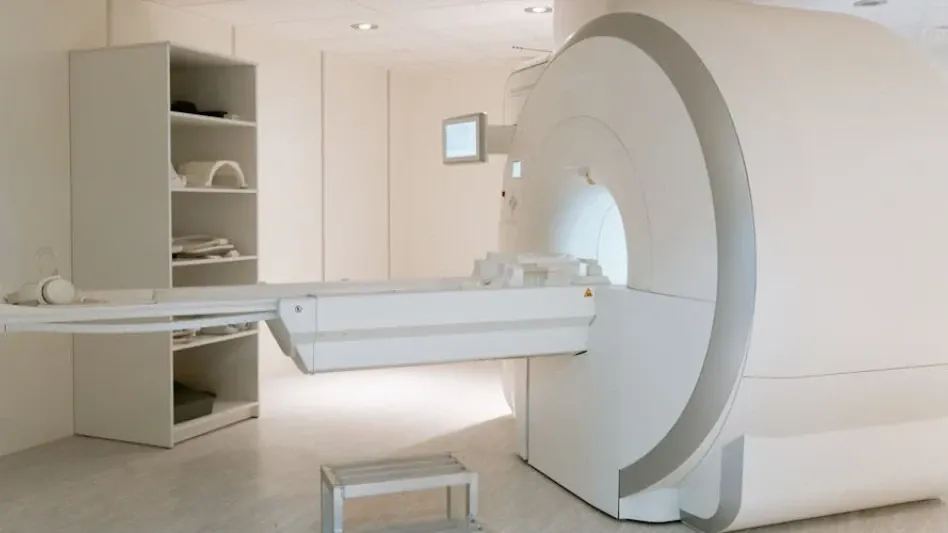Chang Gung Memorial Hospital (CGMH) in Linkou, Taoyuan City, Taiwan, has made remarkable strides in the healthcare sector through significant IT advancements. These achievements have not only enhanced the hospital’s technological and infrastructural capabilities but also improved patient care and operational efficiency. This article delves into the various aspects of CGMH Linkou’s transformation, highlighting key accomplishments and their impact on healthcare delivery.
Achieving HIMSS Validations
Stage 6 DIAM Validation
CGMH Linkou’s pursuit of the HIMSS Digital Imaging Adoption Model (DIAM) validation underscores its commitment to enhancing digital imaging capabilities. The hospital’s Information Management Department worked closely with specialized medical teams to integrate clinical proficiency with IT expertise. This collaboration aimed to refine the use of digital imaging technologies, ultimately improving clinical decision-making and patient care.
The implementation of advanced digital imaging systems has enabled CGMH Linkou to achieve a Stage 6 DIAM validation. This recognition reflects the hospital’s ability to effectively utilize digital imaging technologies, ensuring accurate and timely diagnoses. The integration of these systems with clinical workflows has streamlined processes, reducing the time required for image analysis and interpretation.
Stage 7 INFRAM Validation
In addition to its DIAM validation, CGMH Linkou has also attained a Stage 7 validation for the HIMSS Infrastructure Adoption Model (INFRAM). This achievement highlights the hospital’s advanced infrastructure maturity, focusing on cybersecurity, sustainability, performance, and outcomes. The hospital’s upgrade to the highest stage of INFRAM within a year is a testament to its dedication to continuous improvement.
The transformation of CGMH Linkou’s Medical Data Center since 2021 has been crucial in accommodating increasing demands for IT-enabled services such as AI, big data, and precision medicine. The hospital’s efforts in upgrading its infrastructure have resulted in enhanced operational efficiency and improved patient care.
Integration of AI and Big Data
AI-Based AVIEW LCS Plus System
One of the central components of CGMH Linkou’s technological advancements is the implementation of the AI-based AVIEW LCS Plus system by Coreline Soft in September 2023. This system is utilized for low-dose CT chest image scanning to detect early signs of lung cancer, COPD, and coronary artery calcification. The integration of AI has significantly alleviated the radiologist workload by 87%, allowing them to focus on more complex cases.
The AI-driven AVIEW LCS Plus system enhances the accuracy and efficiency of critical diagnostics, ensuring early detection and timely intervention. This technology not only improves patient outcomes but also optimizes the use of hospital resources, contributing to overall operational efficiency.
Big Data and Precision Medicine
CGMH Linkou’s proactive stance towards future-oriented healthcare services is evident in its adoption of big data analytics and precision medicine. The transformation of the Medical Data Center has enabled the hospital to harness the power of big data, facilitating advanced research and personalized treatment plans. By leveraging data-driven insights, CGMH Linkou can provide tailored care that meets the unique needs of each patient.
The integration of big data analytics into clinical workflows has also improved the hospital’s ability to predict and manage patient outcomes. This approach ensures that patients receive the most effective treatments, reducing the likelihood of complications and enhancing overall healthcare quality.
Enhancing IT Governance and Infrastructure
IT Governance and Process Enhancements
CGMH Linkou’s journey towards achieving the highest stage of INFRAM involved significant collaborative efforts for technology improvements, process enhancements, and staff training. The hospital’s focus on IT governance has been instrumental in driving these advancements, ensuring that all technological initiatives align with clinical goals and operational objectives.
The establishment of robust IT governance frameworks has facilitated the seamless integration of new technologies into existing systems. This approach has minimized disruptions and ensured that all stakeholders are adequately trained to utilize the new tools effectively. As a result, CGMH Linkou has been able to maintain high standards of care while embracing innovative solutions.
Network Infrastructure Upgrades
The hospital’s network infrastructure upgrades have played a pivotal role in enhancing operational efficiency and patient care. The adoption of service-focused architecture and flexible network design involved implementing high-speed fiber networks, software-defined networking (SDN), and TIA-942 standards for data centers. These improvements have enabled CGMH Linkou to support the increasing demands for IT-enabled services and ensure reliable connectivity across the hospital.
The implementation of SDN has also facilitated rapid threat detection via real-time surveillance, bolstering the hospital’s cybersecurity measures. This proactive approach to network management ensures that potential threats are identified and mitigated promptly, safeguarding patient data and maintaining the integrity of hospital systems.
Strengthening Cybersecurity and Internal Communication
Multi-Layered Cybersecurity Strategy
Chang Gung Memorial Hospital (CGMH) in Linkou, Taoyuan City, Taiwan, has achieved significant progress in the healthcare sector by leveraging advanced IT solutions. These technological innovations have not only bolstered the hospital’s infrastructure but also greatly enhanced patient care and operational efficiency. As a major medical center, CGMH Linkou’s dedication to integrating cutting-edge IT systems demonstrates their commitment to delivering superior healthcare services. The hospital’s efforts span various domains, including electronic health records, telemedicine, and data analytics, which have collectively streamlined many processes and improved overall care delivery. For example, the implementation of electronic health records has expedited access to patient information, enabling quicker and more accurate diagnoses. Telemedicine services have broadened access to medical consultation, making it easier for patients to receive timely care. Furthermore, data analytics has played a crucial role in identifying health trends and improving treatment outcomes. This article explores these key accomplishments and assesses their far-reaching impact on healthcare delivery at CGMH Linkou.









